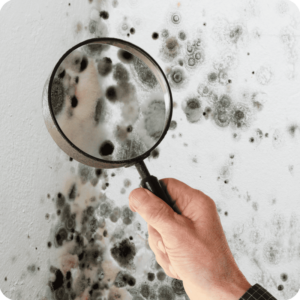Can Black Mold Affect Your Brain?
Molds in homes can be a very dangerous and costly problem especially when an infestation of black mold occurs. The health effects and the symptoms of black mold exposure cover a wide range of health problems hence knowing the indicators can keep you and your family safe. But, what is black mold? Commonly known as Stachybotrys chartarum, black molds are molds that thrive in warm moist environments including toilets, showers, basement, and kitchens.
Health Issues That Black Mold Can Cause
Many black molds are toxigenic which means they release toxins that can be harmful or even irritating to those who have preexisting conditions. Toxic molds can cause serious health problems and symptoms such as breathing problems, brain impairment, damage to the internal organs and even deaths. However, since these symptoms are not the same for everyone, it can be hard to diagnose. The main problems that toxic black molds causes include mental problems, respiratory issues, circulatory symptoms, skin problems, eye problems, reproductive system problems, immune system problems, discomfort, and tiredness.
 How Black Mold Affects The Brain
How Black Mold Affects The Brain
When mold enters your body through the air or skin, it can cause disturbances in many body organs including the brain. Often confused as just allergies, mold infection can greatly affect the cognitive function of the brain. When this happens, many dysfunctions occur leading to psychological distress and even feelings of craziness. Toxic mold can kill the neurons of the brain and affect a person’s mental ability. They also cause nervous disorders like tremors and personality changes such as irritability and mood swings.
Scary Symptoms Of Mold Infections
·Coordination problems
·Psychological stress
·Exhaustion
·Vertigo
·Muscle weakness
·breathing problems
·Mental fog
·Digestive issues
·Shortened attention span
·Memory loss
·Impaired learning ability
·Trembling and shaking
·Aggression and numbness
Treating Mold Infection
If you’ve experienced black mold infection symptoms, the first step is to have the mold completely removed or remove yourself from the contaminated environment. However, in serious incidences, you need to take the necessary steps to treat it. Because of its long-term effects, it can easily be misdiagnosed and mistreated thereby leaving you more frustrated. If you think that you have mold symptoms, then you need to get a proper evaluation. To test for mold allergies and symptoms, your doctor may perform a blood test and skin prick test. These tests can help diagnose both severe mold poisoning and mold allergies. Treatment for black mold exposure and allergies may include:
- Nasal sprays: You can use over the counter nasal sprays to reduce any inflammation caused by black mold allergies or a solution of warm distilled water to clean your nasal passages and remove congestion.
- Over the counter medications: Over the counter drugs such as antihistamines can also help reduce your immune system and the swelling that occurs due to allergic reactions.
- Allergy shots: Your doctor may also recommend getting regular allergy shots to boost your body’s immune system over time.
*Something additional you can do is check out air cleaners specifically to remove mildew and mold.
Wrap Up
People with allergies, asthma, brain problems and immune system conditions are usually very vulnerable to mold. Thankfully, by keeping your space clean and your indoor humidity low, it’s not difficult to prevent mold overgrowth. You just need to keep an eye for a small growth and remove the black mold before it gets out of control. However, if you think that your health is at risk speak to your allergist or doctor.

Comments
Post a Comment